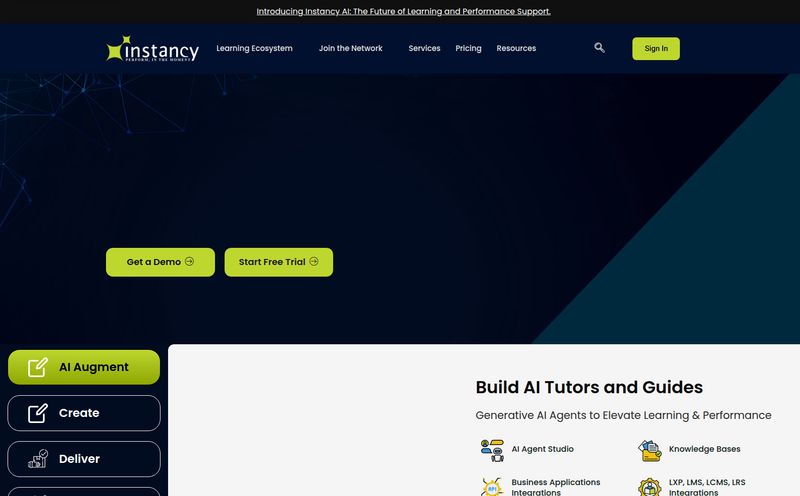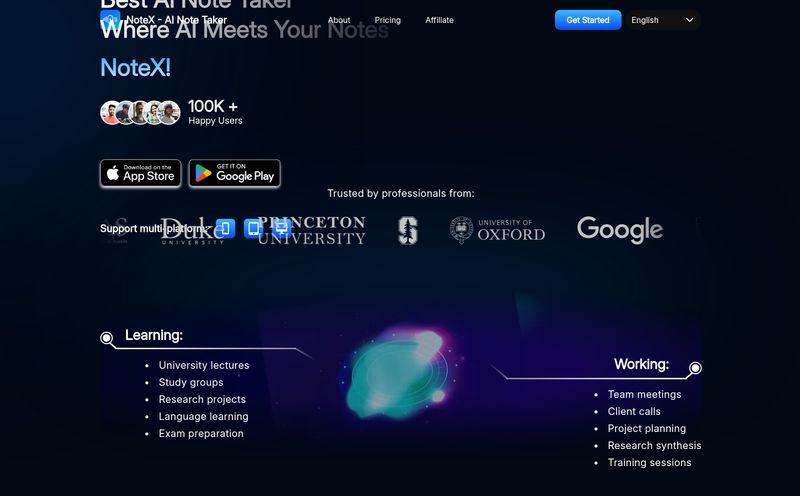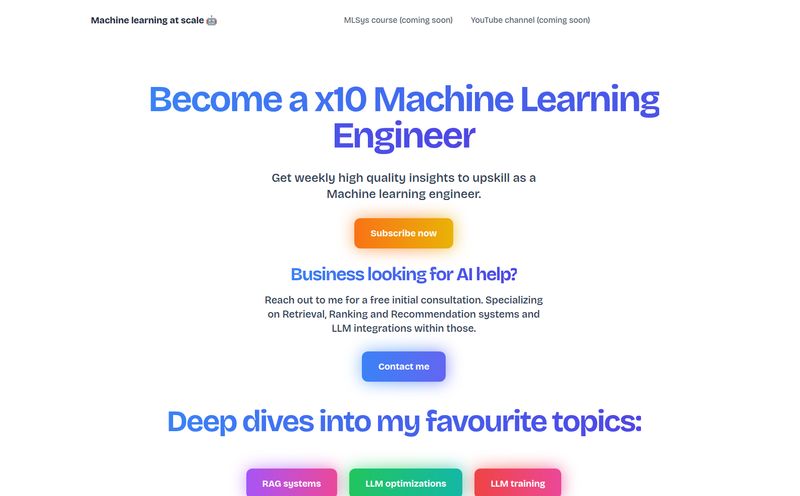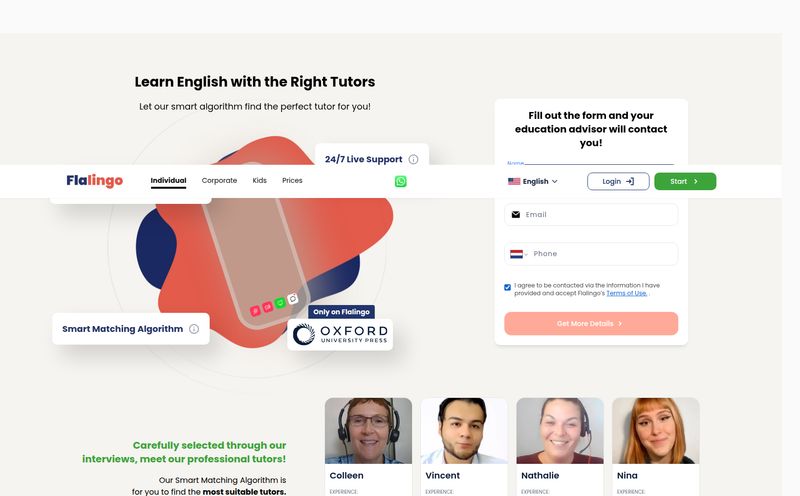As someone who lives and breathes digital trends, I’ve seen a million language apps. They all promise fluency, they all have slick interfaces, and they all, eventually, start to feel like the same glorified vocabulary game. You tap a few pictures, you match a few words, and you get a satisfying little ding sound. Fun? For a bit. Effective? Mmm, the jury’s still out.
I've been on that hamster wheel myself. Trying to brush up on my rusty college French, I've downloaded more apps than I can count. Most of them ended up collecting digital dust after a week. So when I stumbled upon Language Atlas and its bold claim—”Become Fluent... By Studying Just 30 Minutes A Day”—my inner skeptic raised a well-practiced eyebrow. Another one? But then I started digging, and what I found was... well, refreshingly different.
What on Earth is Language Atlas?
At its core, Language Atlas is an online learning platform focused exclusively on French and Spanish. Right away, that focus is a good sign. Instead of trying to be a jack-of-all-trades for 50 languages, they’ve honed in on two of the big ones. The entire system is built on a three-part harmony: structured lessons, adaptive flashcards, and a global community forum. It’s not trying to gamify your learning into oblivion; it’s trying to give you an actual, structured curriculum. You know, like a real class, but without the awkward small talk and fluorescent lighting.
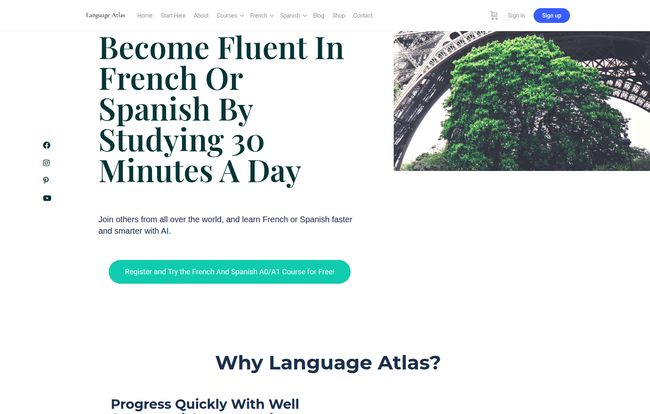
Visit Language Atlas
The Core Method: Why This Isn't Just Another Shiny App
Here’s where I really started to pay attention. The methodology behind Language Atlas feels intentional, built by people who have actually thought about pedagogy, not just user acquisition metrics. It’s a one-two punch of solid theory and smart tech.
Structure That Actually Makes Sense with CEFR Standards
Okay, acronym alert: CEFR. If you've ever seriously looked into language learning, you've probably seen these letters. It stands for the Common European Framework of Reference for Languages. It’s basically the gold standard for gauging language proficiency, from A1 (total beginner) to C2 (basically a native speaker). It's the framework that serious institutions use.
Most apps just throw random topics at you. “Let’s learn words for the zoo!” Cool, but how does that help me order a coffee in Paris? Language Atlas builds its courses directly on the CEFR levels. You start at A0/A1 and logically progress through the building blocks of the language. Each lesson gives you clear explanations, plenty of audio examples (with a real human voice, thank you very much), and little quizzes to make sure you're not just nodding along. This structure is everything. It's the difference between wandering aimlessly in the woods and following a well-marked trail to a stunning viewpoint.
The Magic of Truly Adaptive Flashcards
Now for my favorite part. We all know flashcards work. But we also know the pain of making them. And the guilt of not reviewing them. Language Atlas takes this whole process and puts it on autopilot with a system built on spaced repetition and active recall.
Here’s the genius bit: When you get something wrong in a quiz, the platform doesn’t just say “Nope, try again.” It automatically creates a personalized flashcard for you based on that specific mistake. These cards then enter a customized review schedule. The concepts you struggle with show up more often, while the ones you’ve mastered are shown less frequently. This isn’t just memorization; it's forcing your brain to actively retrieve information, which is how you build strong, lasting memory pathways. It’s a smart system that learns you as you learn the language. I found it incredibly effective, especially for tricky verb conjugations that always seem to slip my mind.
So, What's the Catch? Let's Talk Pricing.
Alright, nothing this good can be completely free, right? Sort of. This is one of the platform’s biggest selling points, in my opinion. They offer the entire A0 and A1 courses for both French and Spanish completely free. Not a 7-day trial, but free forever. This is huge. It gives you more than enough material to get a real feel for the platform and decide if its teaching style clicks with you, without ever reaching for your wallet.
If you love it and want to go all the way to C1 (for French) or B1 (for Spanish), you’re looking at a one-time payment. As of my review, both the French Lifetime and Spanish Lifetime plans were listed at $199.95. Now, I know some people might get sticker shock from that, especially in a world of $10/month subscriptions. But do the math. A year of Babbel or a similar service can easily cost you over $100. If you’re serious about learning for more than a year or two, a lifetime deal pays for itself pretty quick. It also includes unlimited flashcards, a personalized curriculum, and a certificate of completion.
A quick side note: I did run into a weird little hiccup trying to get to their pricing page directly; a bot verification wall kept popping up. It's a minor technical annoyance, but I found the info clearly listed on their main pages, so it wasn't a huge deal. Just a quirky thing I noticed.
The Good, The Bad, and The Niche
No tool is perfect, so let’s break it down. The advantages are pretty clear: the CEFR-based structure is top-notch for serious learners, the adaptive flashcard system is genuinely smart, and the free A0/A1 access is an incredibly generous and confident move. I really appreciate that it feels like a course, not a game.
The main drawback is its focus. If your goal is to learn Japanese, German, or, I dunno, Tagalog, you're out of luck. This platform is a French and Spanish specialist. For some, thats a dealbreaker. For me, I see it as a strength. They’ve focused their resources on doing two things exceptionally well rather than 30 things in a mediocre fashion.
Who is Language Atlas Actually For?
So, who should sign up? If you’re a casual learner who just wants a fun, gamified experience to kill five minutes on the bus, Duolingo might still be your jam. And that’s fine!
But if you are a student, a traveler, an aspiring expat, or just someone who is genuinely committed to reaching conversational fluency, Language Atlas is an exceptional choice. It’s for the learner who has tried other apps and felt like something was missing—that missing piece is usually structure. It’s for the person who understands that learning a language is a marathon, not a sprint, and wants a trainer that provides a real, effective training plan.
It's for people like me, who want to do more than just point at a menu and say, “un croissant, s'il vous plaît.”
Final Thoughts
I came into this review expecting to find another contender in the crowded sea of language apps. Instead, I found a platform that feels more like a dedicated online school. Language Atlas respects the complexity of language learning and provides a clear, intelligent path forward. The combination of CEFR-aligned lessons and a truly adaptive review system is a potent one. While the lifetime price tag requires commitment, the massive free tier means you have absolutely nothing to lose by giving it a try. I, for one, have cleared some space on my phone's home screen. This one's a keeper.
Frequently Asked Questions
- Is Language Atlas really free?
- Yes, the A0/A1 level courses for both French and Spanish are completely free to access. This includes lessons, audio, and quizzes. To access higher levels (A2-C1), you need to purchase a lifetime plan.
- What is CEFR and why does it matter?
- CEFR stands for the Common European Framework of Reference for Languages. It's an international standard for describing language ability on a six-point scale (A1 to C2). A platform using CEFR provides a logical, standardized, and credible learning path, unlike apps that teach vocabulary randomly.
- How is Language Atlas different from Duolingo?
- The main difference is the approach. Duolingo is heavily gamified and focuses on bite-sized exercises and repetition. Language Atlas is built like a traditional curriculum, with structured lessons, in-depth grammar explanations, and a smart flashcard system based on your specific mistakes. It's generally considered more rigorous and geared towards serious learners.
- Is the $199.95 lifetime plan worth the money?
- It depends on your goals. If you are committed to reaching fluency over several years, a one-time lifetime payment is often more economical than paying a monthly subscription to another service for that same period. Considering the quality of the curriculum, many serious learners would find it a worthwhile investment.
- What languages does Language Atlas offer?
- Currently, Language Atlas focuses exclusively on French and Spanish. It offers comprehensive courses for different dialects, such as European and Latin American Spanish.
